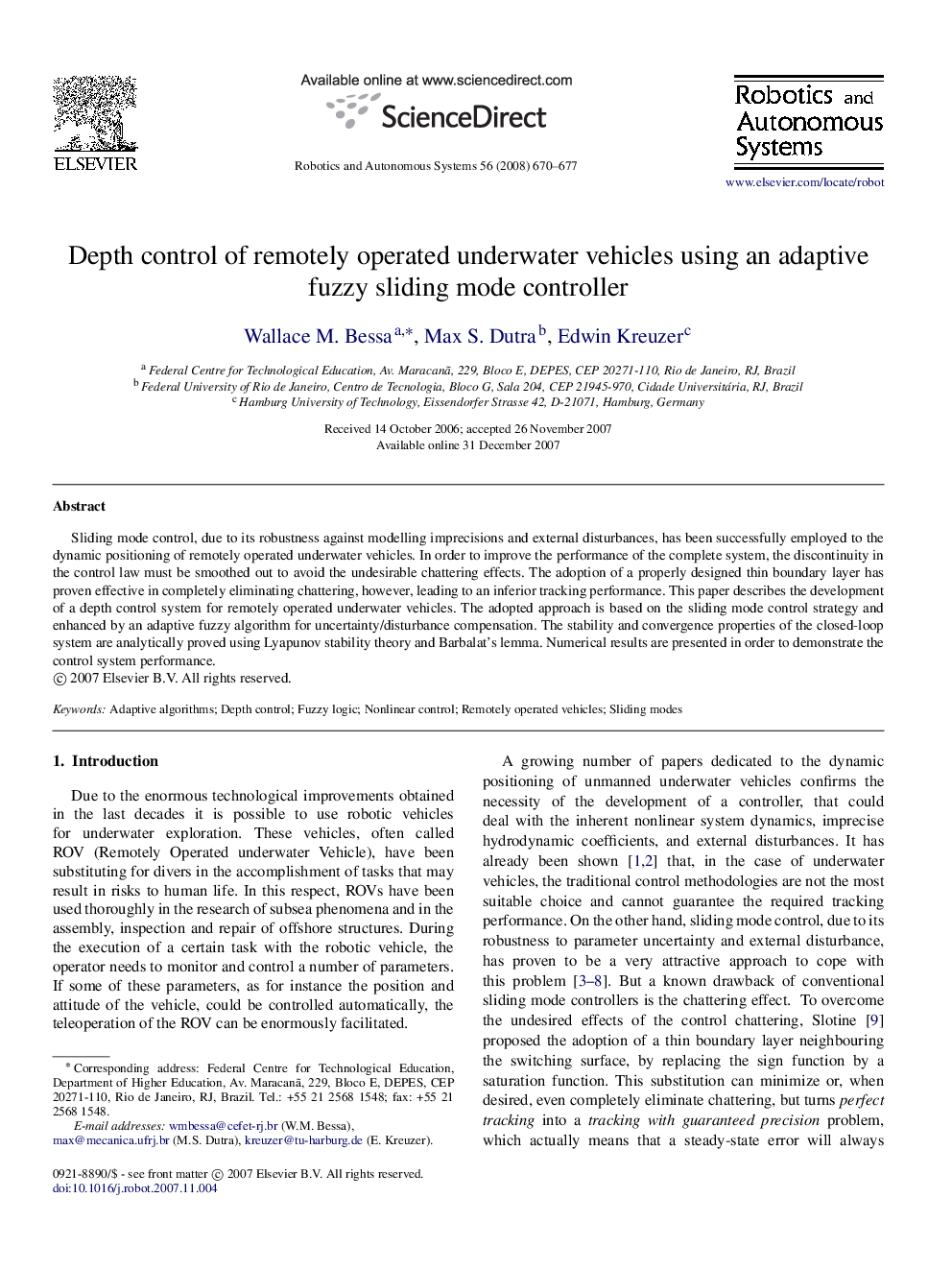| Article ID | Journal | Published Year | Pages | File Type |
|---|---|---|---|---|
| 413542 | Robotics and Autonomous Systems | 2008 | 8 Pages |
Sliding mode control, due to its robustness against modelling imprecisions and external disturbances, has been successfully employed to the dynamic positioning of remotely operated underwater vehicles. In order to improve the performance of the complete system, the discontinuity in the control law must be smoothed out to avoid the undesirable chattering effects. The adoption of a properly designed thin boundary layer has proven effective in completely eliminating chattering, however, leading to an inferior tracking performance. This paper describes the development of a depth control system for remotely operated underwater vehicles. The adopted approach is based on the sliding mode control strategy and enhanced by an adaptive fuzzy algorithm for uncertainty/disturbance compensation. The stability and convergence properties of the closed-loop system are analytically proved using Lyapunov stability theory and Barbalat’s lemma. Numerical results are presented in order to demonstrate the control system performance.
